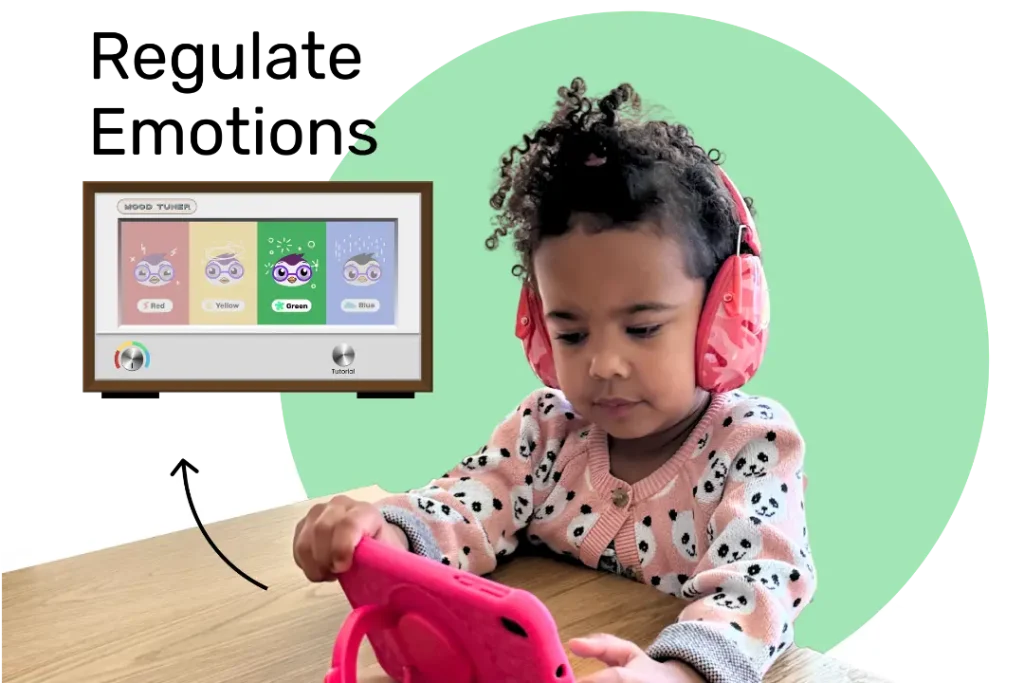As a parent, you might be curious about the term “emotional attachment” and its importance for your child’s growth. In this blog post, we’ll explore emotional attachment, its role in kids’ lives, and how to build a strong bond with your neurodivergent child. Let’s learn more about emotional connections and how they shape our kids’ world.
Table of Contents
What Does Emotional Attachment Mean?
Emotional attachment is the strong bond between a child and their caregiver. This bond is essential for a child’s emotional well-being, social skills, and learning. It gives kids a sense of safety and helps them feel confident about exploring the world. For neurodivergent kids, a strong emotional attachment can help your kid deal with the challenges they face because of their thinking and learning differences.
Different Kinds of Emotional Attachment
There are four main types of emotional attachment in children:
- Secure attachment: Kids feel safe and cared for by their caregivers, who understand and respond to their needs.
- Anxious-ambivalent attachment: Kids are not sure if their caregiver will be there for them, so they feel worried and clingy.
- Anxious-avoidant attachment: Kids learn to take care of themselves and hide their feelings because their caregivers don’t respond well to their needs.
- Disorganized attachment: Kids show a mix of avoidant and ambivalent behaviors because their caregivers are not consistent or are confusing.

Read more: 5 Emotional Attachment Signs in Kids
Remember that attachment styles can change as kids grow. With loving care, kids can develop a secure attachment even if they had trouble with emotional connections at first. Goally’s resources can help parents and caregivers understand and support their child’s emotional attachment journey.
Why Emotional Attachment Is Important for Neurodivergent Kids
For kids with thinking and learning differences, emotional attachment plays a big role in their well-being and growth. A secure attachment helps kids learn to deal with their feelings, which is especially helpful for neurodivergent children who might have trouble with this. A strong emotional bond also gives kids a sense of safety, helping them handle challenges and problems better.
When kids feel loved and valued by their caregivers, they have higher self-esteem and feel better about themselves. Kids with secure attachments are more likely to have good social skills because they learn to trust and talk to others through their relationship with their caregiver. Goally supports parents and caregivers in fostering emotional attachment, which is essential for the overall development of neurodivergent kids.
How to Build Emotional Attachment with Your Neurodivergent Child
Creating a strong emotional bond with your child takes time, but here are some tips to help you build a secure attachment:

Read more: Can Attachment Styles Change in Kids?
- Be there for them: Pay attention to your child’s needs and respond quickly and kindly. This helps them feel safe and understood.
- Have routines: Regular routines make kids feel more secure, which is especially comforting for kids with thinking and learning differences.
- Support their feelings: Show your child that their feelings matter and comfort them when they’re upset. This helps them learn to handle their emotions and be more resilient.
- Help them be independent: Encourage your kid to try new things and learn, but also be there to guide and reassure them when they need it.
- Show them good relationships: Be a great example of how to treat others, so your child can learn how to build strong, caring connections.
Goally’s learning tablet and apps can also support your efforts in building emotional attachment with your neurodivergent child. By offering tools and resources that cater to their unique needs, Goally helps create a nurturing environment for your child’s emotional growth.
Goally | Kid’s Tablet for Building Emotional Regulation Skills
Is your child struggling with understanding and managing their emotions? Goally teaches emotional regulation skills in a fun and interactive way!

The Mood Tuner app encourages kids to look inwards and identify their feelings, helping them understand what’s going on inside. Once they’ve recognized their emotions, they can choose from a variety of exercises designed to help them self-regulate and find their balance.
Emotional Attachment: A Journey for Life
Building a strong emotional attachment with your neurodivergent child is a journey that lasts a lifetime, but the rewards are priceless. By creating a secure bond, you’re giving your child the support they need to grow emotionally, socially, and in their learning. So, as you go through your parenting journey, remember that your emotional connection with your child is one of the most powerful things you have to help them succeed. Goally is here to support you and your kid every step of the way.
This post was originally published on 05/02/2023. It was updated on 08/14/2023.

Goally
We help parents teach their kids life skills, like doing bedtime and morning independently. Backed by science, we incorporate evidence-based practices and expert-informed designs in all of our apps and content.





